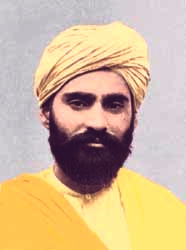A Quote by Sri Aurobindo
Everyone has in him something divine, something his own, a chance of perfection and strength in however small a sphere which God offers him to take or refuse. The task is to find it, develop it & use it. The chief aim of education should be to help the growing soul to draw out that in itself which is best and make it perfect for a noble use.
Related Quotes
Some souls think that the Holy Spirit is very far away, far, far, up above. Actually he is, we might say, the divine Person who is most closely present to the creature. He accompanies him everywhere. He penetrates him with himself. He calls him, he protects him. He makes of him his living temple. He defends him. He helps him. He guards him from all his enemies. He is closer to him than his own soul. All the good a soul accomplishes, it carries out under his inspiration, in his light, by his grace and his help.
Among the English authors, Shakespeare has incomparably excelled all others. That noble extravagance of fancy, which he had in so great perfection, thoroughly qualified him to touch the weak, superstitious part of his readers' imagination, and made him capable of succeeding where he had nothing to support him besides the strength of his own genius.
For those who feel it, nothing makes the soul so religious and pure as the endeavor to create something perfect; for God is perfection, and whoever strives after it, is striving after something divine. True painting is only the image of the perfection of God, a shadow of the pencil with which he paints, a melody, a striving after harmony.
A man should not go where he cannot carry his whole sphere or society with him,Mnot bodily, the whole circle of his friends, but atmospherically. He should preserve in a new company the same attitude of mind and reality of relation, which his daily associates draw him to, else he is shorn of his best beams, and will be an orphan in the merriest club.
A free mind is one which is untroubled and unfettered by anything, which has not bound its best part to any particular manner of being or worship and which does not seek its own interest in anything but is always immersed in God's most precious will. . . . There is no work which men and women can perform, however small, which does not draw from this its power and strength.
Each religion has helped mankind. Paganism increased in man the light of beauty, the largeness and height of his life, his aim at a many-sided perfection; Christianity gave him some vision of divine love and charity; Buddhism has shown him a noble way to be wiser, gentler, purer, Judaism and Islam how to be religiously faithful in action and zealously devoted to God; Hinduism has opened to him the largest and profoundest spiritual possibilities.
The fact, however, to which I want to call attention is that the master of Judo never relies upon his own strength. He scarcely uses his own strength in the greatest emergency. Then what does he use? Simply the strength of his antagonist. The force of the enemy is the only means by which that enemy is overcome.
The price a world language must be prepared to pay is submission to many different kinds of use. The African writer should aim to use English in a way that brings out his message best without altering the language to the extent that its value as a medium of international exchange will be lost. He should aim at fashioning out an English which is at once universal and able to carry his peculiar experience.
The perfection of the effect demonstrates the perfection of the cause, for a greater power brings about a more perfect effect. But God is the most perfect agent. Therefore, things created by Him obtain perfection from Him. So, to detract from the perfection of creatures is to detract from the perfection of divine power.
When I pray, I never pray for myself, always for others, or else I hold a silly, naive, or deadly serious dialogue with what is deepest inside me, which for the sake of convenience I call God. Praying to God for something for yourself strikes me as being too childish for words. To pray for another's well-being is something I find childish as well; one should only pray that another should have enough strength to shoulder his burden. If you do that, you lend him some of your own strength.
If you find it difficult to love the human in someone, then love the divine in him. The divine in him is God. God exists in that person just as God exists in you. To love God is extremely easy because God is divine and perfect. Each time you look at an individual, if you can consciously become aware of God's existence in him, then you will not be disturbed by his or her imperfections or limitations.






































